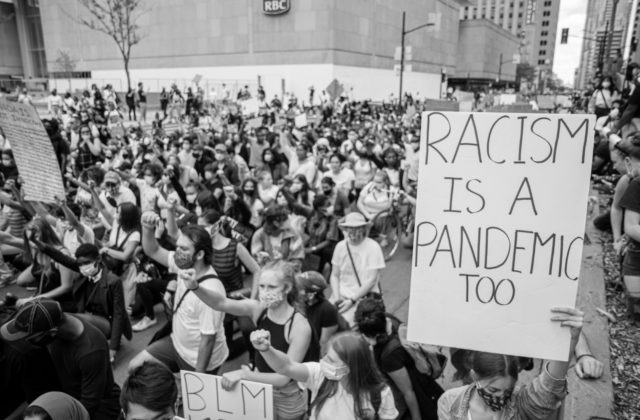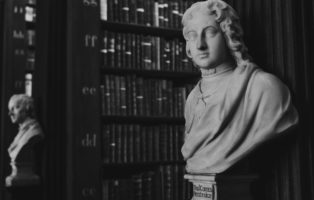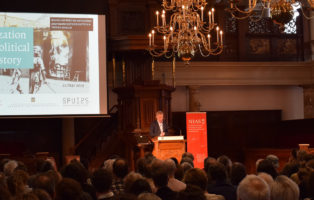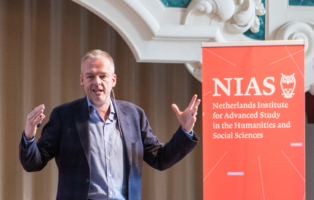Allow me to start with a personal/professional experience from the past year. As some of you might know, it was recently discovered that the municipality of Amsterdam had a special committee until the early 1960s that tried to prevent homosexuals and lesbians working at the municipality. Since this was known, the question was raised whether it happened elsewhere in the Netherlands as well. I was involved in this research (carried by the Verwey-Jonker Instituut). The results –soon to be published- show that not many cities have had such special committees. The reason was not that gays and lesbians were welcome at those municipalities, but the exact opposite: it was so unimaginable that gays and lesbians would work for the government and apply for a job: their existence was so ‘unspeakable’, ‘onbestaanbaar’ in Dutch, that in most cities separate committees were not even considered.
The present feels as a break with that past, not as a continuation
Amongst the researchers, we discussed what conclusions to draw, if any, in terms of public acknowledgement of these terrible wrongdoings – and should we recommend a public apology, or even compensation? Not many of us were in favor of anything like that – and while preparing my notes for today, I started wondering: why not? And what does it tell about the past or present that an apology for centuries of anti-gay discrimination did not seem to make much sense or hold value in our eyes? My, provisional, answer would be that it actually tells us more about the present than the past: the situation for many LGBTQ+ people in the Netherlands has dramatically improved, and is almost incomparable to the past. The present feels as a break with that past, not as a continuation. Well, let me nuance this: for me, as a gay white middle class man, I am in the luxury position not to be marginalized today, it is now almost unimaginable that people like me were unspeakable of half a century ago. First conclusion: in this case, progress exists.
We might say that it is now common in the Netherlands to embrace ideals of sexual and gender equality –at least at the discursive level-, and to feel a sense of disbelief about the wrongdoings of the past (some politicians even rewrite the past as if the Dutch have always been gender and sexual progressive…). But there is still a world to win: although the situation has improved, this society is deeply heteronormative and there is discrimination and violence against gays and lesbians everyday– not to speak about their situation almost everywhere else in the world. Second conclusion: perhaps the COC, who advocate LGBTQ+ rights, should ask for apologies after all…
How do systems of exclusion of the past play out in societies today? This is one of the topics we aim to explore during this Annual NIAS Lecture
How do systems of exclusion of the past play out in societies today? This is one of the topics we aim to explore during this Annual NIAS Lecture. As much as there is a connection between the homophobia of the past in the Netherlands and the anti-gay violence today, there is also an undeniable link between the extreme racial sufferings inflicted during colonialism and slavery and the systemic discrimination of today. It is not just that there is continuity in racist and white supremacist ideas regarding Afro-Dutch people – be it in more covert forms than during the colonial era. We also see that, in present day conversations, this colonial past is mobilized in a way that it actually strengthens everyday racism.
The past has become the battlefield of the present: in particular the radical right –permanently in a nostalgic mood- wants to be proud of the Dutch colonial past. Their emphasis on the glory of the Dutch past seems related to how these radical right groups define themselves in the here and now: as natives of the country. Their dominant position seems justified because of their historical belonging. Their past needs to be glorious in order for their position to sustain in the present. Their claim is thus not so much about the past; it is about the present. It basically tells Afro-Dutch citizens that their side of history is by no means as important as the imagined heroic past of the white Dutch. It tells these citizens they do not truly belong in the Netherlands. Moreover, let’s be clear about this: it is not just the radical right: over the entire political spectrum, nativist ideas are still deeply ingrained in the minds of the Dutch. The shadow of colonialism carries far. Data show that 50% of the Dutch are still proud on their former Empire, a figure far higher than the British and the French.
What does research teach us about countering these exclusionary workings of the past?
What does research teach us about countering these exclusionary workings of the past? Overcoming systemic discrimination asks for double change: to do justice to the past and to the present. It is important to add new perspectives to the past, to deepen our knowledge about our history of colonization and slavery, to do justice to the facts (I remain a scholar after all). But doing justice to the past also implies that we look for a shared evaluation of our collective past: as long as one part of Dutch society claims to be proud on a history that made others suffer for its glory, the past will never come to a close. Moreover, it is not just about doing justice to the past for its own sake: it is necessary to look into our stories about the past because they tell us more about the present than the past; they affect people and the dynamics between them in the present fundamentally.
People on both sides can be shocked and sometimes outraged by the unwillingness of ‘the others’ to acknowledge their version of the past
These stories impact all of us: while some claim that their historical heroes of the colonial past should be honoured again, others strongly feel it is about time to tear those statues of Dutch slave traders down from their pedestal. People on both sides can be shocked and sometimes outraged by the unwillingness of ‘the others’ to acknowledge their version of the past.
Coming to a shared understanding is therefore easier said than done. Who is willing to let go of their vision of the past, especially when so much glory, or the opposite, suffering has been involved? So once again, and that is the third lesson: we have to deal with today’s inequalities and perceived threats to ‘our’ historical identification, if we want to move past this binary discourse.
Today’s three speakers will discuss these forms of doing justice to the past and the present, or more precisely: how stories about the past affect us living together in the present. Jennifer Tosch will shed a new light on the past and emphasize the necessity of a common understanding of that past; Christophe Bertossi will show how narratives about the past-even the ones with the best intentions- can contribute to forms of exclusion in the present, while our mayor, Femke Halsema, will reflect on ways in which dealing with the past may help to overcome the schisms of today.
View the Programme Book of the Annual Lecture
Highlights from the Annual NIAS Lecture 2021




